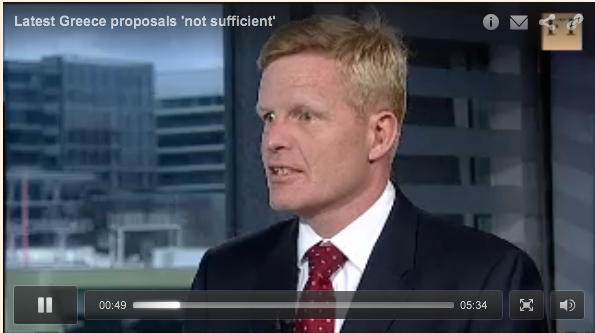Wolfgang Münchau on the complex debt product — a variant of a collateralised debt obligation — the European politicians have turned to solve the debt crisis:
if you own a Greek bond that matures by June 2014, you keep 30 per cent of the redemption as cash, and roll over 70 per cent into a 30-year Greek government bond. The Greeks will have to pay an annual coupon, or interest rate, of between 5.5 per cent and 8 per cent. The precise rate will depend on future economic growth.
Of the money received, Greece will lend on 30 per cent to a special purpose vehicle, another well-known construction from the subprime mortgage crisis. The SPV invests into AAA-rated government or agency bonds, and issues a 30-year zero coupon bond. The purpose of this is to guarantee the principal of the 30-year Greek government bond that you just bought.
With this construction, the downside to your losses is limited. Depending on how some of the parameters of this agreement evolve, you will probably make a small loss, relative to the par value of your holding. If you are lucky, you might come out positive. You will probably not be lucky. But you will still be better off than if you sold today, or if Greece were to default. More important, the accounting rules allow you to pretend that you are not making any losses at all.
>
~~~~
The French roll over proposal to address Greece’s debt sustainability problems is a welcome acknowledgement of the need to restructure but, says Jens Larsen, chief European economist at RBC Capital Markets, it will not be enough to solve the issue or reduce the possibility of contagion. He tells Richard Milne, capital markets editor, what he believes the true end game will involve.
click for video
(5m 34sec)
>
Source:
The Greek rollover pact is like a toxic CDO
Wolfgang Münchau
FT, July 3, 2011 3:49 pm
http://www.ft.com/intl/cms/s/0/039b6ce0-a582-11e0-83b2-00144feabdc0.html


